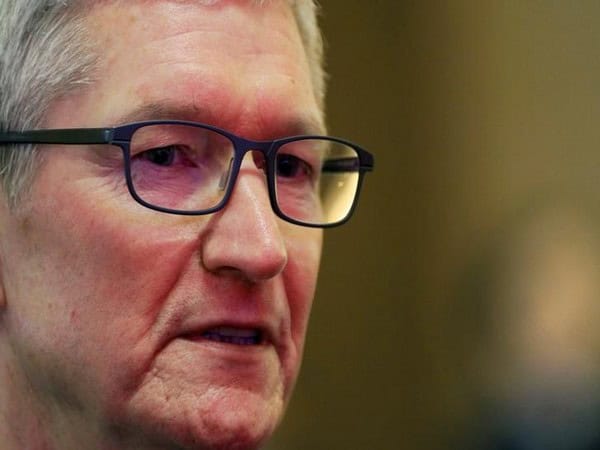Book: Tim Cook: The Genius Who Took Apple to the Next Level; Author: Leander Kahney; Publisher: Penguin Business; Pages: 304; Price: Rs 699
The death of Apple’s co-founder Steve Job on October 5, 2011, shook the world. Critics predicted that the Cupertino-based iPhone maker is doomed and would only survive for two to four more years at the most.
Timothy Donald Cook (known as Tim Cook by the world and “Tim Apple” by the US President Donald Trump) has proved them wrong.
Considered a “colorless, unimaginable drone,” Cook who joined Apple at age 37 in 1998 had none of the charisma and driving personality of his former boss who was beloved and immortalized.
Journalist Leander Kahney, in his biography of Tim Cook, takes a deep dive into how Cook turned a company that was near bankruptcy amid low employee morale into the world’s first firm that touched $1-trillion mark last year.
Born on November 1, 1960, Cook made this possible with his unique set of strengths, which Jobs identified and made him the Apple CEO on August 24, 2011.
Why did Jobs pick Cook over more popular names around for the CEO job — like Apple Chief Designer Jony Ive or Scott Forstall, Senior Vice President of iOS software?
It was Cook’s uncanny ability to go in details while remaining calm, his vast knowledge of streamlining operations and impeccable work ethic that won Jobs’ heart.
In fact, after a long stint at IBM and later Compaq, “Cook himself turned down Apple recruiters multiple times”.
His meeting with Jobs in 1998 convinced him that working with a Silicon Valley legend who created iconic iMac, iPhone, iPod, and iPad line-up would be “privilege of a lifetime”.
Jobs hired Cook as Senior Vice President of worldwide operations, with a base salary of $400,000 and a $500,000 signing bonus.
“It was one of the best hires Jobs ever made”.
Apple was bleeding then, production lines were in a mess and the supply chain ecosystem needed a fresh lease of life.
“Cook fixed Apple supply chain and streamlined the production process, overhauling the entire operations,” writes Kahney.
In a September 2014 interview with TV talk show host Charlie Rose, Cook said he desperately wanted to continue Job’s legacy and “pour every ounce that I had in myself into the company,” but he never had the objective of bringing the same as Jobs.
Tim Cook’s first keynote after Jobs’ death where he introduced the iPad 3 and an updated Apple TV in March 2012 lacked charisma.
But Cook was up to something really big — taking manufacturing out from the US to Chinese factories.
“Hon Hai Precision Industry Company Limited, better known as Foxconn, came to define manufacturing in the Cook era,” says the author.
Apple Watch was the first major product under Cook’s direction with no inputs from Jobs, which became an instant hit.
Cook always took a strong position on privacy which made him a darling among the Apple users.
“Apple does not want your data. Apple does not want to read your emails or sell your personal information to third parties or advertisers, nor would provide backdoor to government agencies to hack into iOS devices,” Cook stressed when the Federal Bureau of Investigation (FBI) came knocking at Apple’s doors, asking the company to unlock an iPhone belonging to one of the terrorists in the 2015 San Bernardino shooting in the state of California.
On the personal front, the Apple CEO’s decision to come out as the first openly gay Fortune 500 CEO made him the “role model for the LGBTQ community.
Religious to the core, Cook said: “I consider being gay among the greatest gifts God had given me”.
Being born and raised in Alabama where racism is still alive, Cook saw the worst behavior in terms of discrimination that “literally made him sick”.
Today, he has made Apple a more inclusive and diverse place to work.
“Under his leadership, Apple has hired a greater proportion of minority workers than many of its Silicon Valley peers and given generous grants to historically black colleges and charities,” writes Kahney.
Under Cook, Apple has done a great job at the front of accessibility, diversity at work, environment and improving workers’ conditions at its suppliers’ end.
Humble and soft-spoken, Cook is pushing Apple and the entire tech industry forward, creating an ethical transformation. Other brands are now following Apple.
[source_without_link]IANS[/source_without_link]

